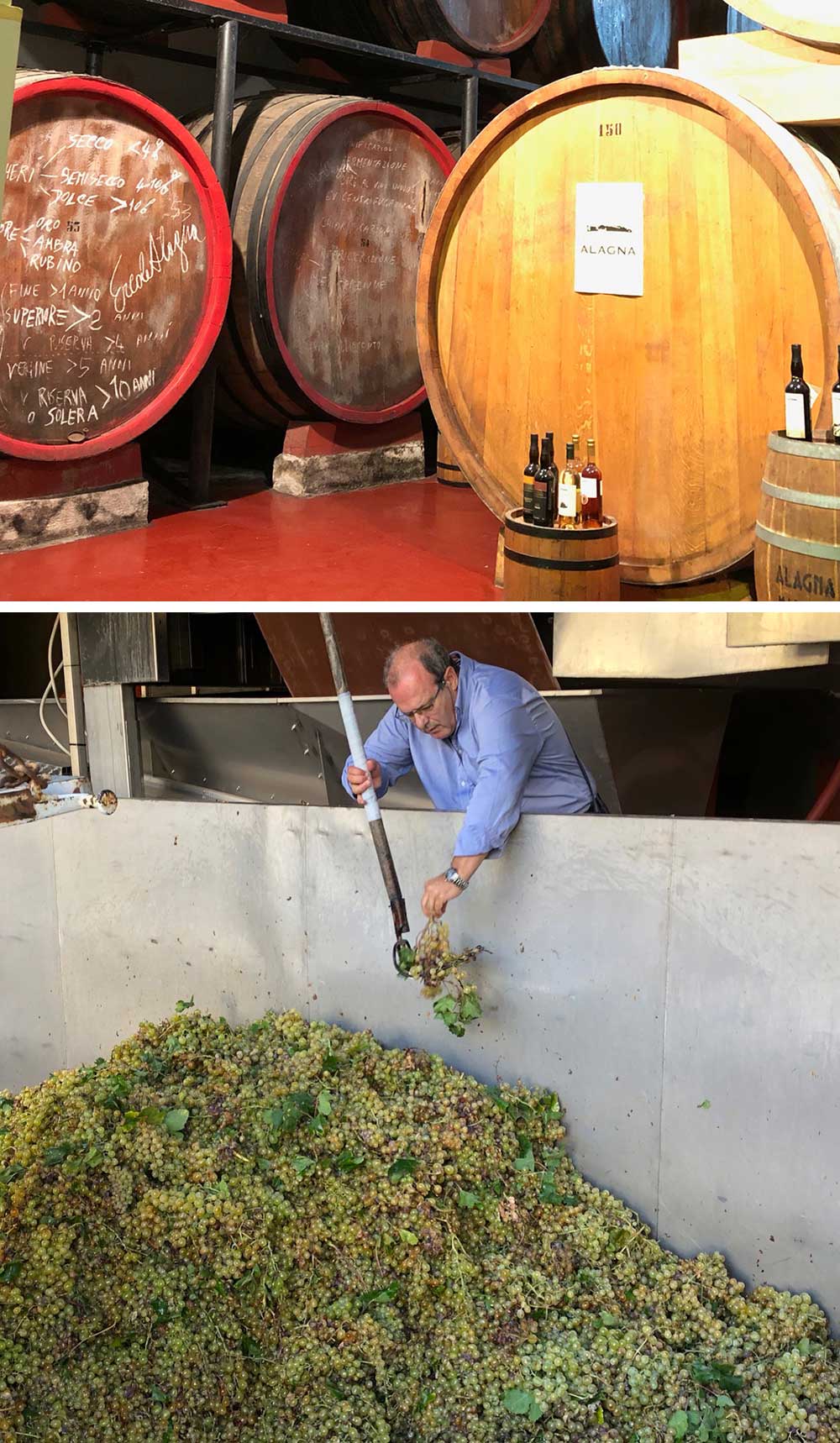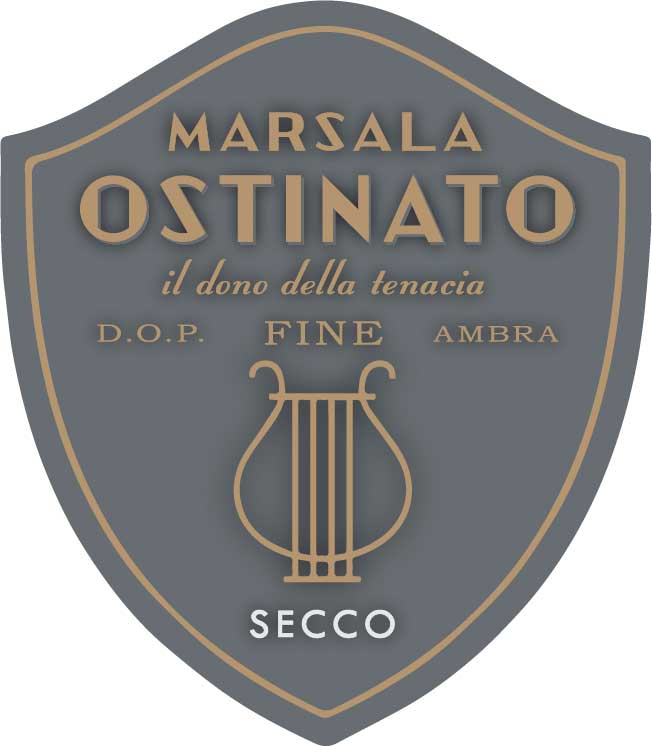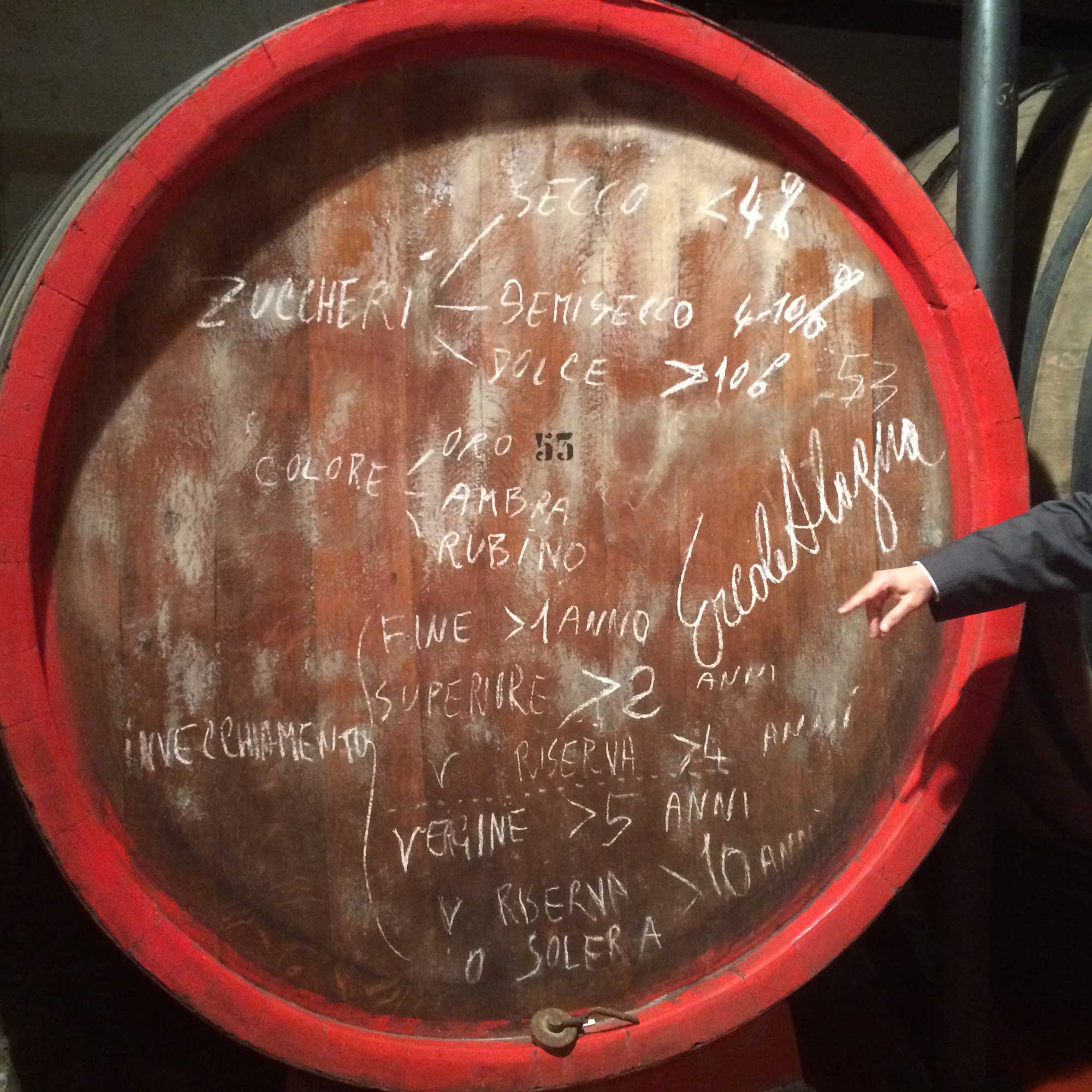Marsala
Marsala is one of the world’s best known yet most misunderstood wines. Today, it is largely thought of in cooking contexts, but its origins are as one of the world’s foremost fortified wines, akin to Port, Madeira, Sherry and the Vin Doux Naturels of France (Rivesaltes, Maury and Banyuls).
While wine has been produced on the northwestern corner of Sicily since antiquity, the modern history of Marsala begins with the arrival of Englishman John Woodhouse in 1773. A veteran of the trade, he immediately recognized the potential of the vino perpetuo his local hosts gave to him when a storm forced his ship ashore. He purchased fifty pipes and returned to Liverpool, where his instincts proved correct; the wine, fortified with brandy for the rigors of the sea journey, proved an overnight success and thus launched the Marsala trade. It was Woodhouse who introduced Marsala to Admiral Lord Nelson, which lead to Marsala becoming an official ration for the British Royal Navy and lent it a place on ‘every gentleman’s table’. Over the next 125 years, English and Italian merchants would build the harbor and the baglios (fortress-like wineries) that dot the landscape and now stand as a testament to Marsala’s ‘golden age’.
The latter half of the 20th century witnessed the slow decline of Marsala as large baglios pursued a path of overproduction and winemaking shortcuts that secured its well-deserved reputation as ‘cooking wine’. The vast majority of wine produced was on an industrial scale, intended solely for the cook’s larder. Some producers continued to make small quantities of wine that spoke to Marsala’s earlier renown, but there was little demand; traditional Italian restaurants beyond Sicily were more likely to offer Port than Marsala on their wine lists. Since the 1980s, however, a small coterie of producers have gradually begun to rediscover ‘true Marsala’, their efforts focused on the vineyards and on the quality of the ‘base wine’ that comes from them. Today, that movement remains small but vital, committed to reexamining and reclaiming the glories of Marsala’s storied history.
Ostinato Marsala Fine Ambra Secco
Italy ➜ Sicily ➜ Marsala DOC 17.0% ABV
17.0% ABV • Fortified, Oxidative
Delicious, balanced and refined, Ostinato Fine Ambra Secco is a dry Marsala that is produced according to traditional methods now rarely seen in the appellation, especially in Fine expressions. It begins with its ‘alto grado’ base wine, from late-harvest, low-yielding Grillo, Inzolia and Catarratto old vines. Its higher natural ABV means the wine is less reliant on fortification and is more expressive of Marsala’s indelible terroir. Extended aging beyond the minimum Fine requirements produce a Marsala that resonates with deep vinous character.
Full detailsOstinato Marsala Fine Ambra Dolce
Italy ➜ Sicily ➜ Marsala DOC 17.0% ABV
17.0% ABV • Fortified, Oxidative
Delicious, balanced and refined, Ostinato Fine Ambra Dolce is a sweet Marsala that is produced according to traditional methods now rarely seen in the appellation, especially in Fine expressions. It begins with its ‘alto grado’ base wine, from late-harvest, low-yielding Grillo, Inzolia and Catarratto old vines. Its higher natural ABV means the wine is less reliant on fortification and is more expressive of Marsala’s indelible terroir. Extended aging beyond the minimum Fine requirements produce a Marsala that resonates with deep vinous character.
Full details






